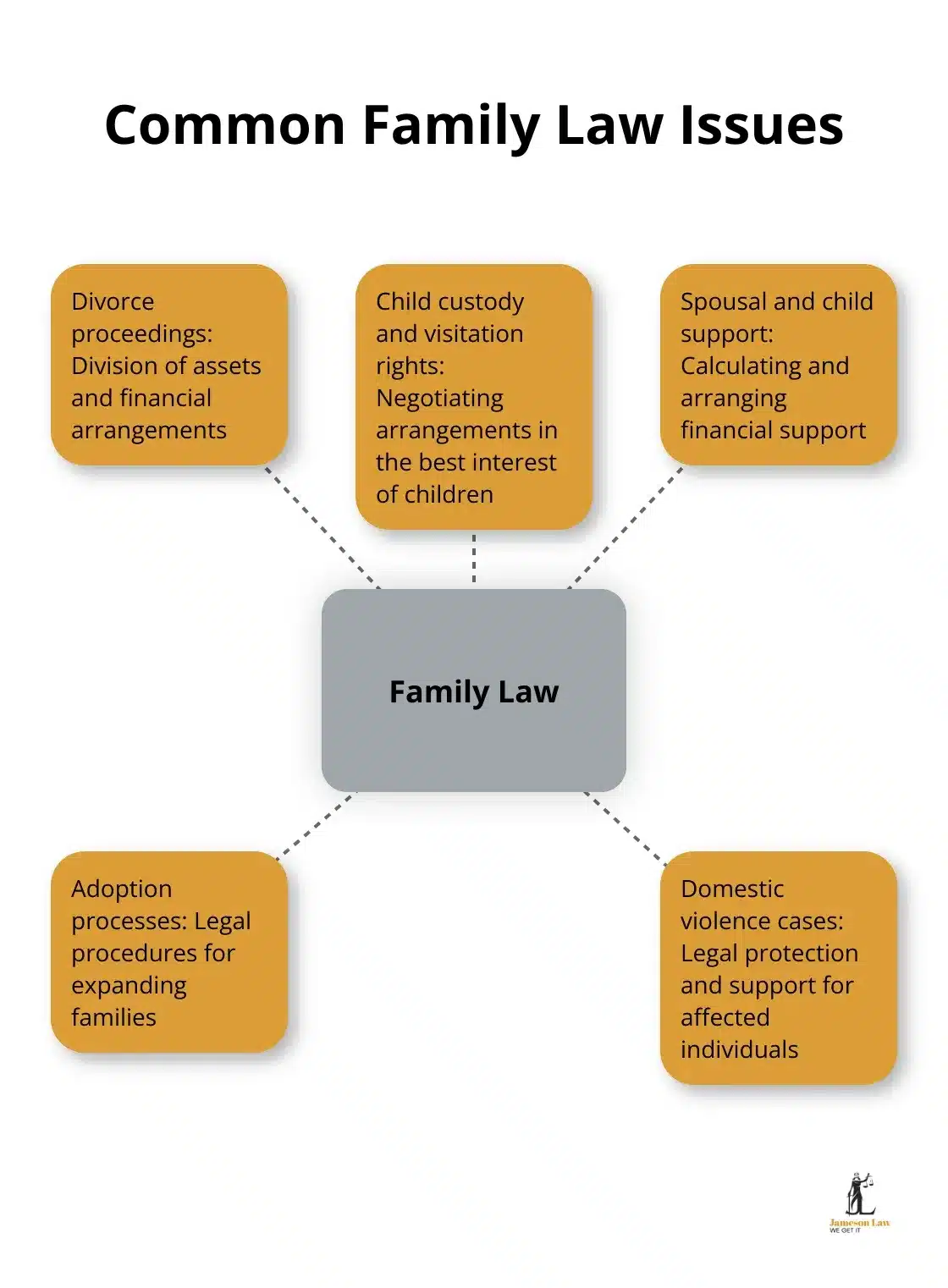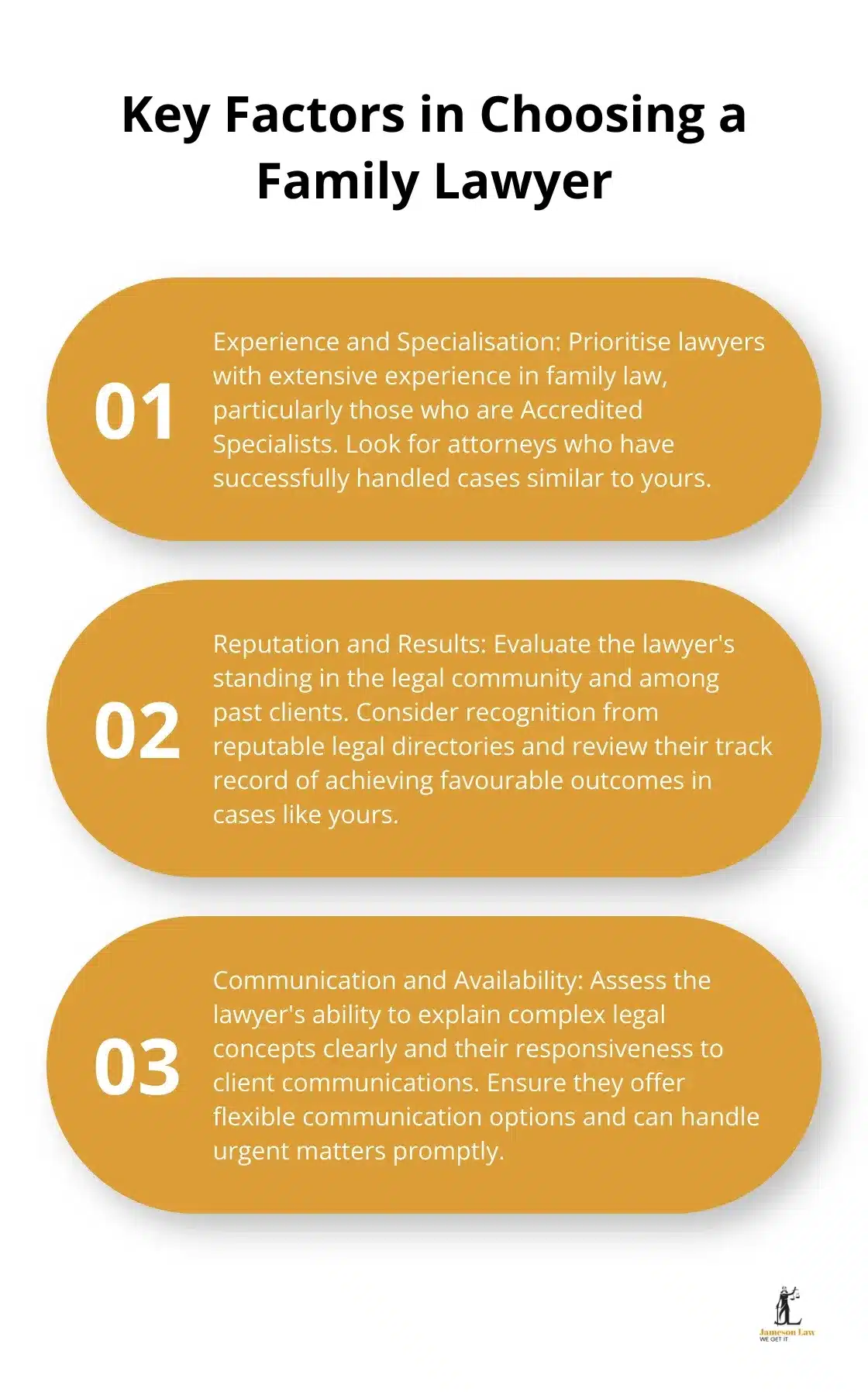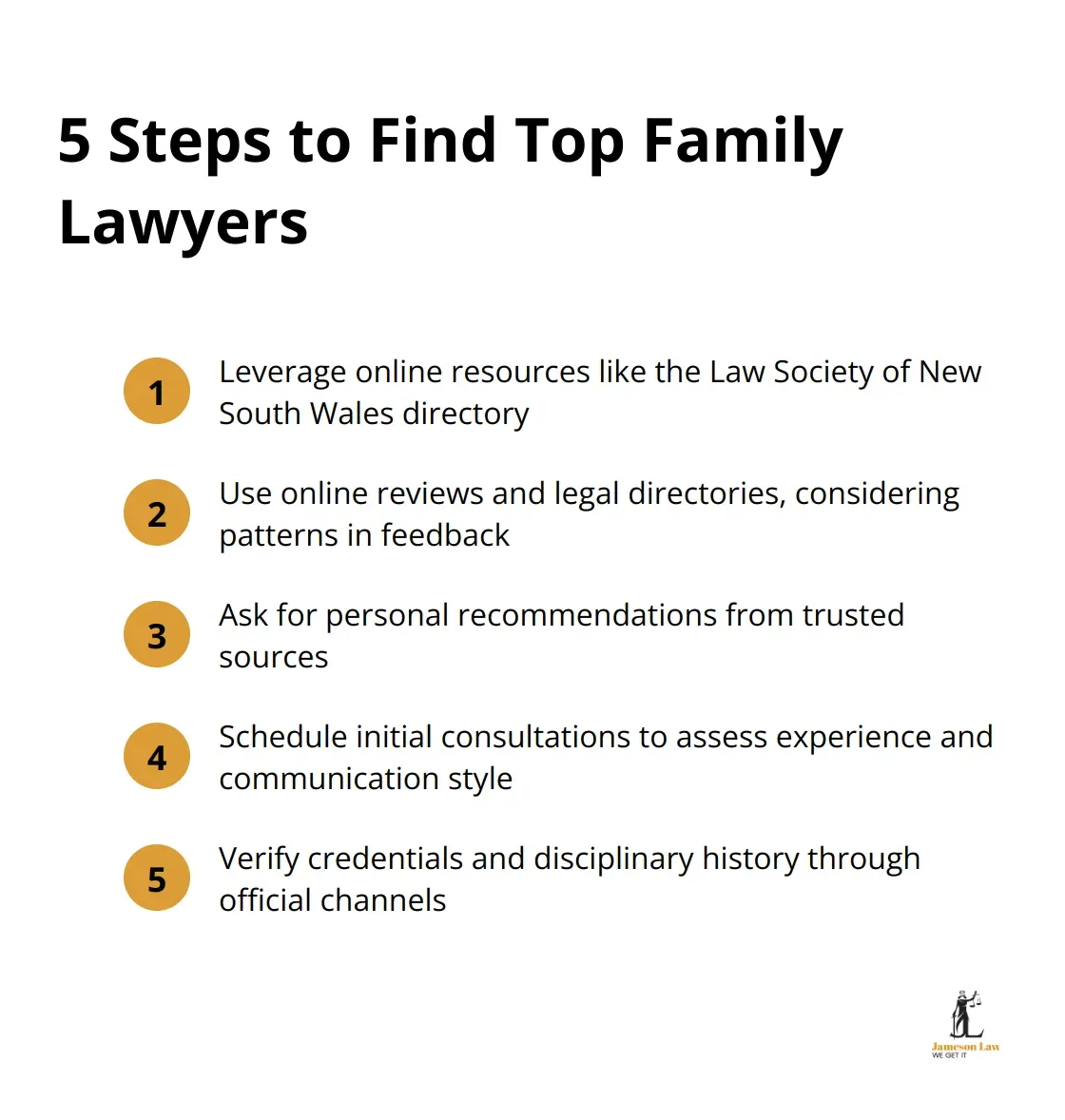Finding the best family law lawyer near you can be a daunting task, especially during challenging times. Family legal matters often involve sensitive issues that require expert handling and compassionate guidance.
At Jameson Law, we understand the importance of having a skilled solicitor by your side when navigating complex family law situations. This guide will help you locate and evaluate top-rated family lawyers in your area, ensuring you have the right support for your legal needs.
What Is Family Law and Why Does It Matter?
The Scope of Family Law
Family law is a specialised legal field that addresses domestic relationships and family-related issues. It encompasses a broad range of matters that affect families, from marriage and divorce to child custody and property settlements. The primary goal of family law is to protect the rights and interests of all family members, with a particular focus on children, during periods of change or conflict.
Common Family Law Issues
Family lawyers handle various cases that can profoundly impact people’s lives. These include:
- Divorce proceedings (where assets need division and financial arrangements)
- Child custody and visitation rights (often contentious issues requiring careful negotiation)
- Spousal and child support calculations
- Adoption processes
- Domestic violence cases
In Australia, family law also covers de facto relationships, same-sex partnerships, and issues related to assisted reproductive technology.

As society evolves, the scope of family law expands to address new challenges that arise in modern family structures.
The Value of Skilled Legal Representation
Attempting to navigate family law matters without proper legal guidance can lead to significant risks. The emotional nature of these cases often clouds judgement, which can result in decisions with long-lasting consequences. A skilled family lawyer provides objective advice and ensures the protection of your rights throughout the legal process.
For example, in property settlements, a lawyer can help identify and value assets that might otherwise go unnoticed. In child custody cases, they can advocate for arrangements that truly serve the best interests of the children involved.
Legal Expertise in a Complex Field
The Family Law Act 1975 governs family law in Australia, and it has undergone numerous amendments over the years. Major changes to this Act came into effect in May 2024, reshaping how courts decide parenting cases. Keeping up with these changes requires dedicated legal professionals who specialise in this area. Family law experts must stay informed about the latest legal developments to provide the most current and effective advice to their clients.
The complexity of family law cases often necessitates a multidisciplinary approach. Lawyers may need to collaborate with financial advisers, child psychologists, and other experts to build a strong case. This collaborative effort ensures the consideration of all aspects of a family’s situation when seeking legal solutions.
The Role of Family Lawyers in Dispute Resolution
Family lawyers play a crucial role in dispute resolution, often helping clients avoid lengthy and costly court battles. They are experienced in mediation and other alternative dispute resolution methods, helping parties reach amicable agreements on various issues. This approach not only saves time and money but also helps preserve relationships, which is particularly important when children are involved.
As we move forward, it’s essential to understand how to choose the right family lawyer for your specific needs. The next section will explore the key factors to consider when selecting a family law solicitor to represent your interests.
How to Choose the Right Family Lawyer
Assessing Experience and Specialisation
When you search for a family lawyer, you should prioritise those with extensive experience in family law. The Law Society of New South Wales allows lawyers who have practised family law for at least five years and completed additional training to become Accredited Specialists in Family Law. This accreditation indicates expertise and dedication to the field.
Consider the lawyer’s specific experience with cases similar to yours. For example, if you face a complex property settlement involving business assets, you’ll want a lawyer who has successfully handled such cases before.
Evaluating Reputation and Results
A lawyer’s reputation in the legal community and among past clients provides valuable insights into their capabilities. Look for lawyers who have received recognition from reputable legal directories or professional associations. The Australian Law Awards highlight outstanding performers in various legal categories each year, including family law partners who have advised clients on matters such as divorce, surrogacy, adoption, and domestic violence.
Client testimonials and case outcomes tell a lot about a lawyer’s abilities. While past results don’t guarantee future success, they can indicate a lawyer’s ability to achieve favourable outcomes. Ask potential lawyers about their success rate in cases similar to yours (but be wary of those who promise specific results, as ethical lawyers know that each case is unique).
Communication and Availability
Effective communication is paramount in family law cases. During your initial consultation, assess the lawyer’s ability to explain complex legal concepts in terms you can understand. Pay attention to how they listen to your concerns and respond to your questions.
Availability is another important factor. Family law matters often require timely responses and actions. Inquire about the lawyer’s typical response time to client communications and how they handle urgent matters. Some lawyers offer flexible communication options to ensure clients can reach them when needed.
Understanding Fee Structures
Legal fees can vary significantly among family lawyers. Ask potential lawyers for a detailed explanation of their fee structure. Some may offer fixed fees for certain services, while others work on an hourly basis. Make sure you understand what’s included in the quoted fees and what additional costs you might incur.
Transparency when it comes to legal costs is essential. A reputable lawyer will provide clear fee agreements and regular updates on the costs associated with your case, helping you budget effectively for your legal expenses.

While cost is an important consideration, it shouldn’t be the sole determining factor. The expertise and quality of representation you receive can have a far greater impact on the outcome of your case than the initial legal fees.
Now that you understand the key factors in choosing a family lawyer, let’s explore how to find and evaluate top-rated attorneys in your area.
How to Find Top Family Lawyers Near You
Leverage Online Resources
Start your search for the best family lawyer by using online resources. The Law Society of New South Wales website maintains a directory of solicitors. You can use their online directory to search for NSW practices and solicitors who hold a current practising certificate.
Use Online Reviews and Directories (with Caution)
Online reviews can offer insights, but approach them carefully. Look for patterns in feedback instead of isolated comments. The Australian Law Awards, published yearly, highlight outstanding lawyers. The Law Society provides tips for crafting compelling award submissions, which can help you understand what makes a lawyer stand out.
Ask for Personal Recommendations
Personal recommendations from trusted sources can prove invaluable. If you know someone who has experienced a similar legal situation, ask about their lawyer experience. (Keep in mind that family law cases are highly personal, and what worked for one person may not be ideal for you.)
Schedule Initial Consultations
After you shortlist potential family lawyers, schedule initial consultations. Many family lawyers offer free or low-cost initial meetings. During these consultations, ask about:
- Their experience with cases similar to yours
- Their approach to family law matters
- Their success rate in achieving favourable outcomes
Pay attention to how the lawyer communicates. Do they explain legal concepts clearly? Do they listen to your concerns? A lawyer who can effectively communicate complex legal issues in understandable terms is essential for a successful attorney-client relationship.
Verify Credentials and History
Before you make a final decision, verify the lawyer’s credentials and disciplinary history. The Law Society provides information on disciplinary decisions. You can find judgements and decisions about solicitors involved in disciplinary actions. This step ensures you work with a reputable professional.

Final Thoughts
Choosing the right family lawyer requires careful consideration and thorough research. You should evaluate potential attorneys based on their experience, reputation, communication style, and fee structures. The best family law lawyer near you will possess a combination of these qualities and align with your specific needs.
You can find top-rated family lawyers in your area through online resources, personal recommendations, and initial consultations. Verify credentials and disciplinary history to ensure you work with a reputable professional. Taking action to seek legal help when needed will help you navigate complex family law matters more effectively.
Jameson Law offers experienced family lawyers who provide tailored advice and representation. Our team (committed to helping you achieve the best possible outcome for your case) can assist with divorce, child custody issues, and property settlements. Contact us today for expert legal support during your family law matter.













